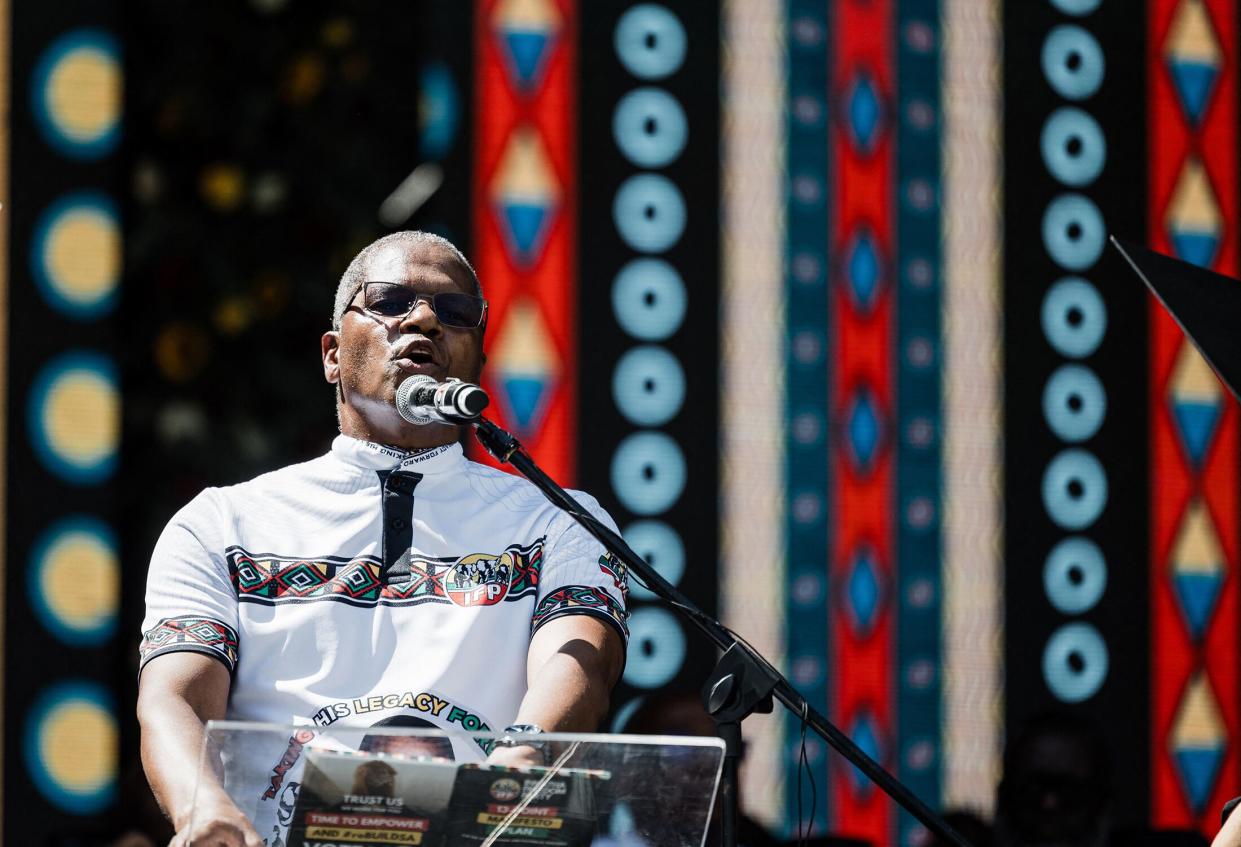South Africa’s IFP Vows to Put Citizens First to Cut Joblessness

- Oops!Something went wrong.Please try again later.
(Bloomberg) -- South Africa’s opposition Inkatha Freedom Party pledged to prioritize locals over foreigners as a strategy to tackle unemployment in its campaign manifesto released before elections in May.
Most Read from Bloomberg
One of the Most Infamous Trades on Wall Street Is Roaring Back
Stock Rally Stalls in Countdown to Inflation Data: Markets Wrap
The country’s fourth-largest party will push for legislation that requires companies to allocate 80% of positions to South Africans and wants small supermarkets run by foreign nationals to be “returned” to locals, IFP leader Velenkosini Hlabisa said Sunday. The IFP will also “invoice” the countries of origin of foreign nationals who are treated at the nation’s public hospitals, he said.
For more on South Africa’s election, click on ELEC ZA
“South Africans must come first,” Hlabisa told more than 60,000 supporters who gathered at the Moses Mabhida Stadium in the eastern port city of Durban. “Every job opportunity must be given to a person from South Africa before considering a foreign national.”
South Africa has one of the world’s highest jobless rates at 32.1%. The lack of employment opportunities is one of the key reasons for voter dissatisfaction with the ruling African National Congress. Opinion polls show the party will lose its national majority for the first time in three decades in the May 29 election.
With an estimated 2.4 million largely unskilled undocumented migrants from neighboring countries including Zimbabwe and Mozambique living in the country, according to a 2022 census, the continent’s most-industrialized economy has witnessed regular xenophobic clashes and riots.
“We are not xenophobic,” Hlabisa said. “The IFP champions inclusive, market-led economic policies that empower all South Africans and contribute to the country’s overall economic growth and development.”
Coalition Partners
A number of analysts see the ANC and IFP as the most natural fit for a coalition should there be no outright winner of the vote, even though the IFP has signed a cooperation accord with 10 other opposition parties that precludes them from working with the ruling party. One possible permutation would be for the IFP to agree to support the ANC nationally and that it be given control of the eastern Kwazulu-Natal province, its main stronghold, in exchange.
The election will be the first in which the IFP is competing without its founder, Mangosuthu Buthelezi, who died last year.
Buthelezi led the IFP from 1975 until 2019 before handing over the reins to Hlabisa. The party’s supporters engaged in an undeclared civil war with the ANC’s backers in KwaZulu-Natal that was fueled by the apartheid government and claimed thousands of lives before a truce was agreed.
The country’s first multiracial elections in 1994 saw the ANC win power nationally and the IFP secure the KwaZulu-Natal premiership, but it relinquished that post to the ruling party in the 2004 elections and has failed in repeated attempts to recapture it. The province, the country’s second-most populous, is set to be a key election battleground, with the ANC having relied heavily on its support there to bolster its national vote count.
The IFP won 3% of the vote in the last national elections in 2019. It’s seen an upsurge in support since then, winning control of a number of municipalities.
The party continues to draw on Buthelezi’s legacy to draw support, with his image appearing alongside that of Hlabisa on its posters and T-shirts. The slogan of this year’s campaign is “Do it for Shenge,” a reference to the late leader.
Most Read from Bloomberg Businessweek
Academics Question ESG Studies That Helped Fuel Investing Boom
Luxury Postnatal Retreats Draw Affluent Parents Around the US
How Apple Sank About $1 Billion a Year Into a Car It Never Built
The Battle to Unseat the Aeron, the World’s Most Coveted Office Chair
How Microsoft’s Bing Helps Maintain Beijing’s Great Firewall
©2024 Bloomberg L.P.


